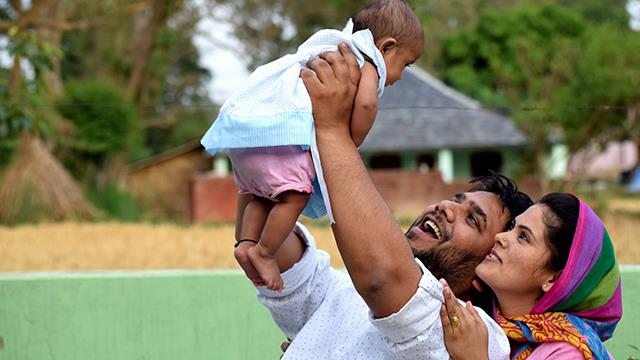Challenging the norm: Rome-based Agencies build capacity on gender norms
A key component of development efforts to end hunger and malnutrition involves tackling the persistent gender inequalities that limit women’s potential and constrain their economic and social empowerment.

To raise awareness of the root causes of gender inequalities, a select group of FAO and IFAD colleagues was invited to participate in a pilot capacity development workshop on social norms, led by WFP for the other two Rome-based Agencies, FAO and IFAD, on 13-14 April 2021.
Organized in the framework of the EU-funded Joint Programme on Gender Transformative Approaches for Food Security and Nutrition (JP GTA), the workshop was facilitated by Baton Osmani, Programme Advisor for Gender at WFP.
“We are surrounded by norms that dictate or give a model for our behaviour. Sooner or later in our lives, we all face expectations that define the different roles for men and women and that teach us how we should behave. These expectations inform us about ‘masculinity’ and ‘femininity’, according to the society we live in,” noted Baton.
Changing social norms to advance gender equality and women’s empowerment
By focusing on participants’ lived experiences, the training was designed to trigger a learning process through reflection on, and questioning of, accepted beliefs and practices that have shaped individuals’ daily lives and continue to guide their behaviours. Despite the personal nature of experiences, discussions highlighted the crosscutting nature of certain gender norms beyond the family, religious, cultural, national or socio-economic context.
“Harmful gender norms and prescriptive roles for men and women influence societies by fostering discrimination, creating barriers for women – and often for men as well – and determining who has access to resources, services and benefits. Analysing this context is important to understand the challenges and opportunities, and to decide which discriminatory gender norms and behaviours must be addressed to achieve change that is sustainable in the longer term,” said Silvia Sperandini, Gender and Social Inclusion Programme Support at IFAD.
The workshop also offered the possibility to discuss the impact of gendered social norms on development interventions. Ilaria Sisto, FAO Gender and Development Officer, presented the four objectives of FAO’s Policy on Gender Equality for 2020-2030 and invited participants to think about the gender norms that might influence or hinder the achievement of some of these objectives. Discussion groups then explored ways and potential development interventions implemented at different scales – policy, institutional, household/community level – that could help transform these norms and unequal power dynamics to ensure equal opportunities and benefits for all.
Strengthening collaboration between the Rome-based Agencies
WFP has been implementing training on social norms for its staff for several years. This pilot initiative that saw WFP extend theworkshop to staff from FAO and IFAD for the first time forms part of the JP GTA’s broader efforts to enhance collaboration and synergies among the UN Rome-based Agencies.
The JP GTA is aimed at contributing to the achievement of SDG2 by supporting the RBAs to embed gender transformative approaches in their policy dialogues, programmes and projects, working modalities and institutional culture. One of its components focuses on strengthening the competency of RBA staff to understand the root causes of inequalities for gender transformative programming.
Hajnalka Petrics, Global Coordinator of the JP GTA, explained: “Examining and questioning gendered social norms forms the basis of gender transformative approaches that have the potential to change established gender roles for men and women. The sessions and feedback overwhelmingly confirmed participants’ interest in conducting this type of deep-dive into a topic that is crucial for the work of all three Rome-based Agencies’ to advance gender equality, women’s empowerment and food security.”
At the end of the two days, participants emphasized the relevance of the social norms training for their work and recommended rolling it out more widely.
To learn more:
About the Joint Programme: http://www.fao.org/news/story/it/item/1193249/icode/
Gender transformative approaches for food security, improved nutrition and sustainable agriculture – A compendium of fifteen good practices: http://www.fao.org/documents/card/en/c/cb1331en/
Flyer about the Compendium of fifteen good practices: http://www.fao.org/3/cb1548en/CB1548EN.pdf
Contact:
Hajnalka Petrics, Global Coordinator of the Joint Programme for Gender Transformative Approaches for Food Security and Nutrition; [email protected]
